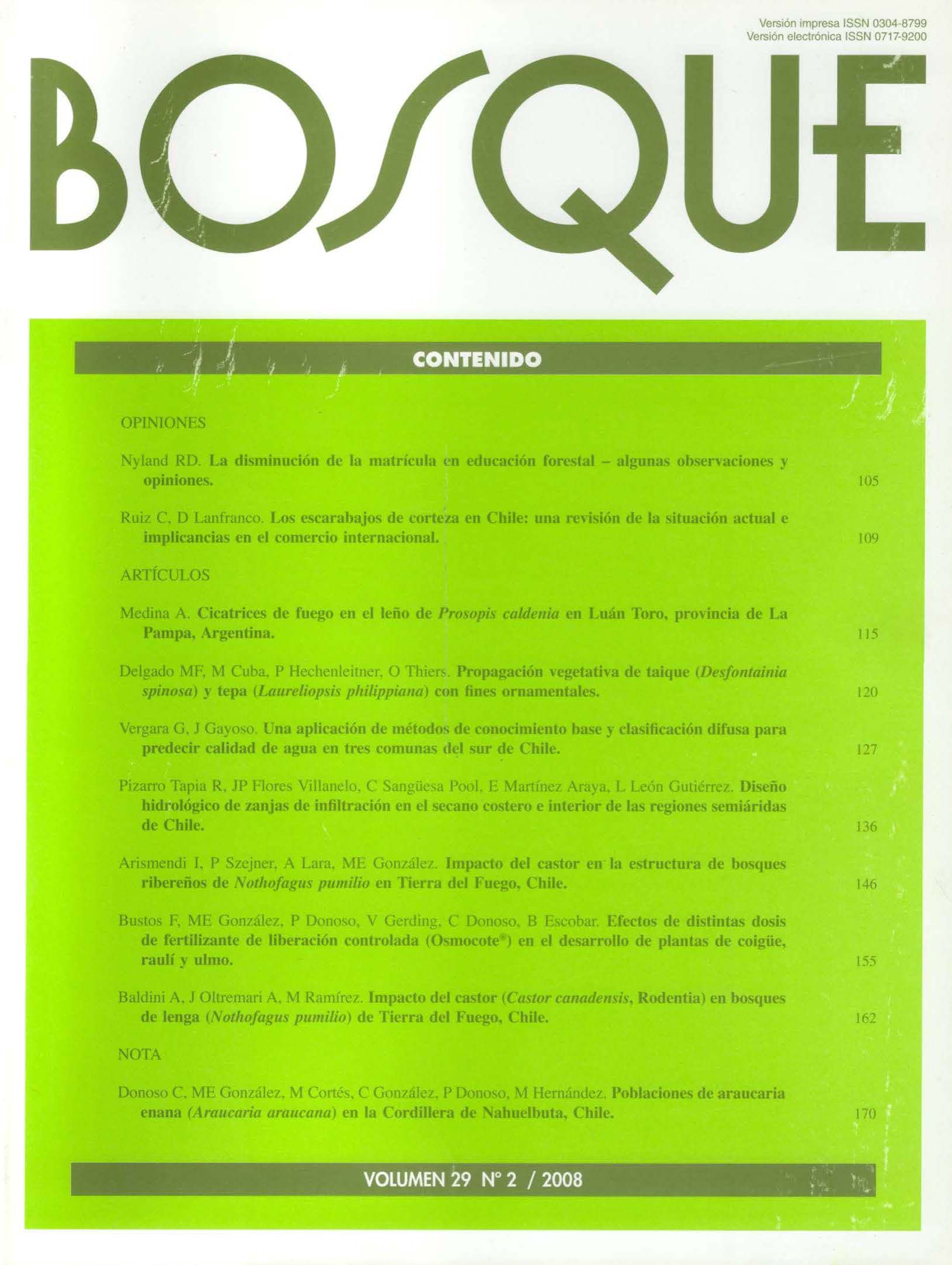Main Article Content
Aug 29, 2008
Abstract
In spite of several international efforts promoting quality of surface water through low sediment generation, this issue has not been undertaken in Chile. Environmental management can be a complex matter due to a deficiency in information or knowledge about causal relationships. This study shows applicability of spatial analysis techniques and Knowledge-Based Systems for modeling probability of supply of free-sediment waters in different areas of three southern counties in Chile. The method considered selection of variables through experts’ opinion and the application of Analytic Hierarchy Process (AHP), where physical and social variables were standardized for the analysis to be carried out. A free-sediment water probability map was produced through fuzzy sets (membership functions) of every spatial unit. The model validation was carried out by turbidity measures in streams. These measures indicated a correlation between low turbidity areas (high quality waters) and forested, low access and good drainage zones. These maps constitute a supporting tool for the sustainable development of fish farming, fly fishing and tourism activities.


